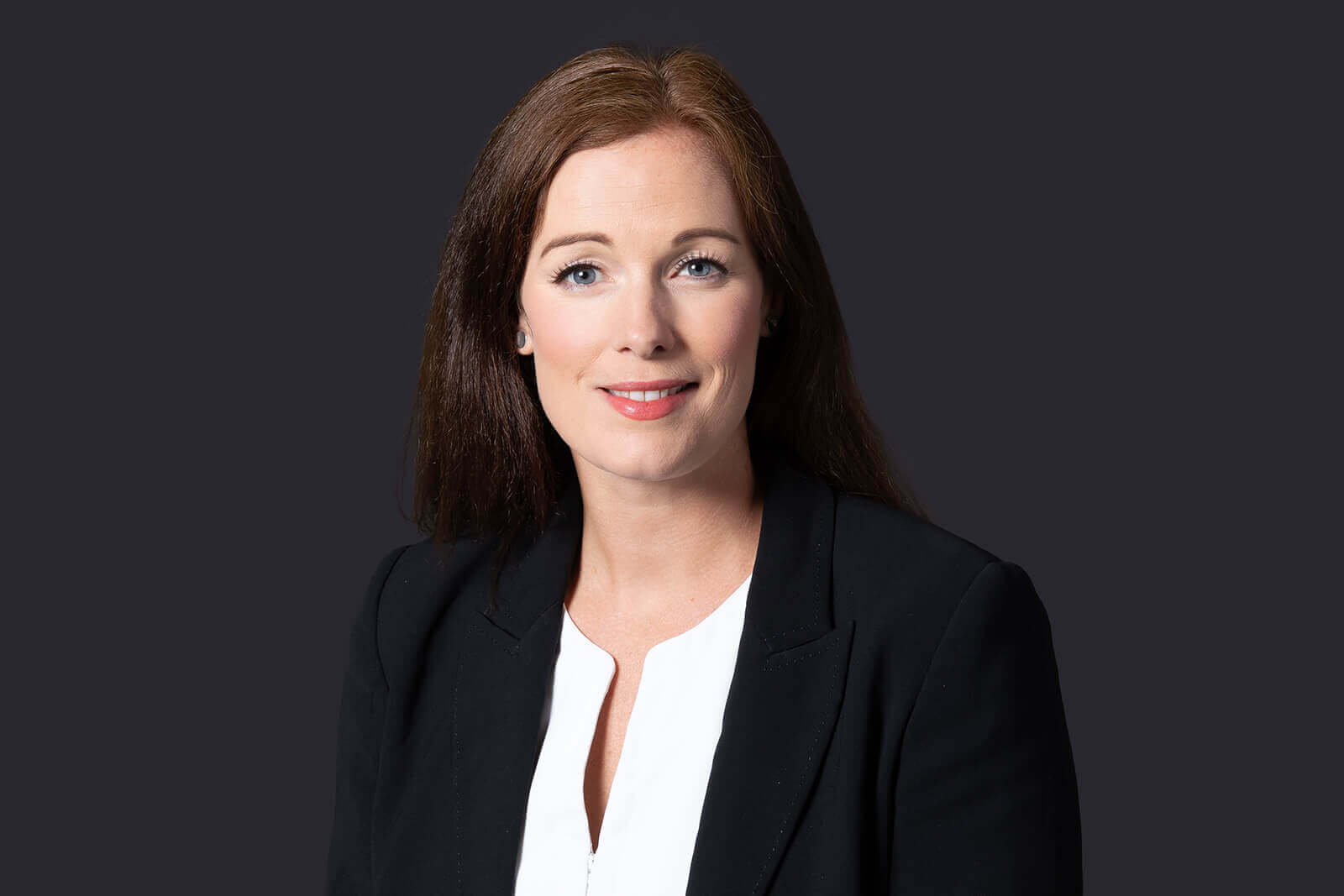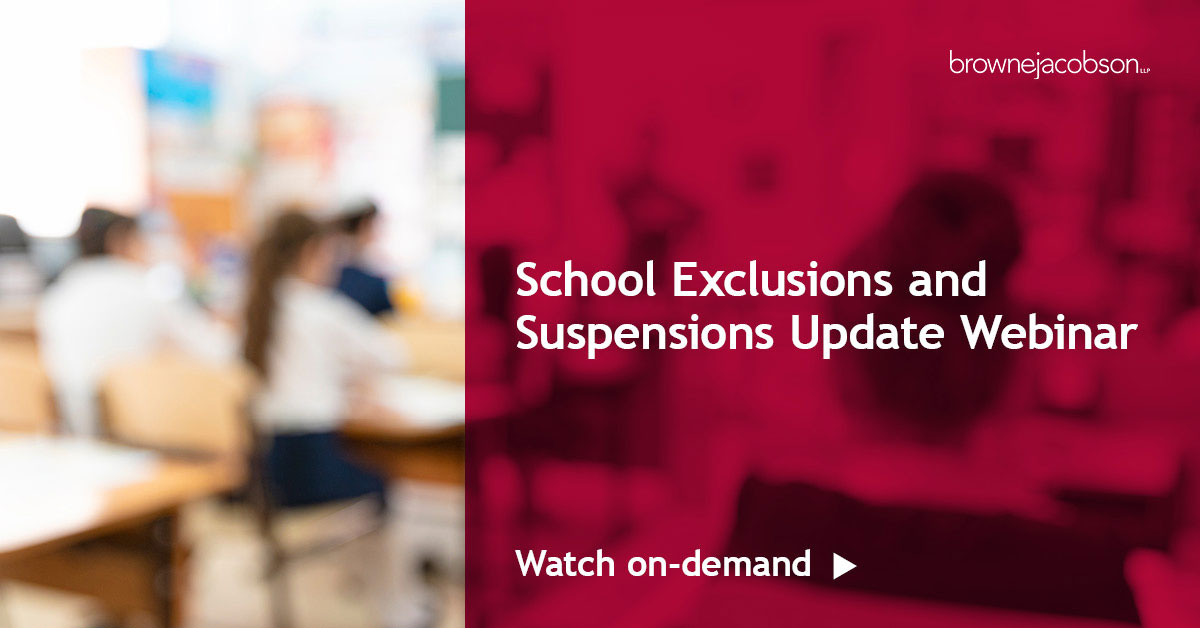School exclusions and suspensions update
Watch our on-demand webinar as we explain the proposed changes and help you understand how they’ll affect you and your school.
This webinar took place on 22 March 2022 and is now available on-demand.
The Department for Education has released its consultation on proposed changes to the behaviour, suspension and exclusion framework and guidance.
Watch our on-demand webinar as we explain the proposed changes and help you understand how they’ll affect you and your school.
The discussion covers proposed changes to:
- Pre-exclusion considerations;
- Managed moves and alternative provision;
- Withdrawing an exclusion; and
- Virtual meetings.
This on-demand webinar is suitable for senior leaders working within a maintained school or academy trust setting, school and trust governors and trustees and local authority officers.
Speakers

Hayley O'Sullivan
Principal Associate
Hayley is a valued member of the education team with over ten years' experience in supporting schools and trusts. Hayley advises on a broad range of education law issues with particular expertise in exclusions and equality issues. She also frequently advises on pastoral issues including admissions, SEND, policies, complex parental complaints, safeguarding and the challenges social media poses for schools, as well as governance and projects work.
hayley.o'sullivan@brownejacobson.com
+44 (0)121 237 3994

Philip Wood
Principal Associate
Philip specialises in education law and has over eight years of experience in advising a range of education institutions
philip.wood@brownejacobson.com
+44 (0)330 045 2274
Contact

Mark Hickson
Head of Business Development
onlineteaminbox@brownejacobson.com
+44 (0)370 270 6000







































